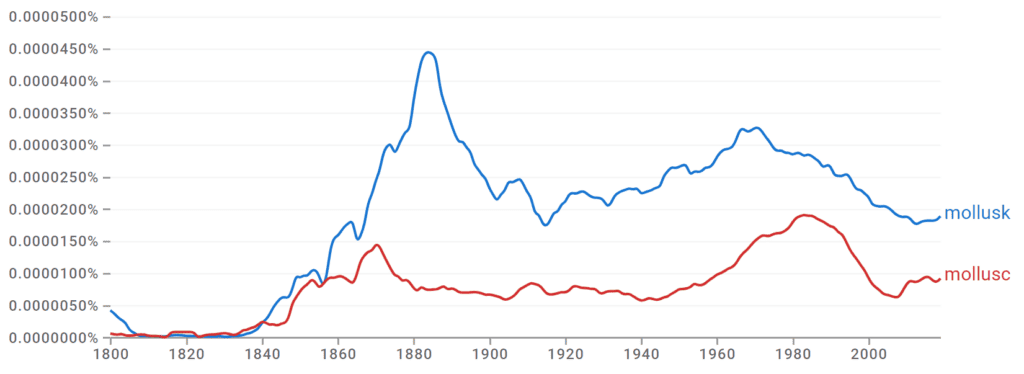For the noun denoting animals of the phylum Mollusca—which includes squid, octopuses, slugs, and snails—mollusk is the preferred spelling in North America, and mollusc is preferred throughout the rest of the English-speaking world.

The word came to English from the French mollusque (which in turn comes from Latin) in the late 18th century,1 and both modern spellings—along with French spelling, which no longer appears in English—were in use from the early 1800s.2 The cross-Atlantic spelling differentiation developed by the middle 19th century and has stayed more or less consistent to the present.3 4
Examples
North America
The toothsome Crassostrea gigas is the first mollusk whose genome has been fully sequenced. [Washington Post]
One of the big mysteries surrounding oysters and many other mollusks is how they manage to thrive in such variable marine environments. [Scientific American]
[T]here must be a better way than listening to the scorched-earth guys like Jeremy Jacobs who contend players are lower than mollusks on the evolutionary scale. [Globe and Mail]
Outside North America
The mollusc has scores of genes that protect it from extremes of temperature and saltiness, where the land meets the sea. [BBC]
When they do stop, they feed on molluscs, crabs, marine worms and aquatic insects. [New Zealand Herald]
The ability to shed body parts, similar to that found in lizards, crabs and earthworms, has reportedly never before been seen in a mollusc. [Independent Online]
Sources
1. Chambers Dictionary of Etymology ↩
2. Mollusc/mollusk in the OED ↩
3. Ngram of mollusc and mollusk in British English, 1800-2000 ↩
4. Ngram of mollusc and mollusk in American English, 1800-2000 ↩